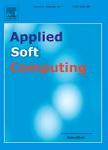版权所有:内蒙古大学图书馆 技术提供:维普资讯• 智图
内蒙古自治区呼和浩特市赛罕区大学西街235号 邮编: 010021

作者机构:Chongqing Univ Posts & Telecommun Key Lab Ind Internet Things & Networked Control Minist Educ Chongqing 400065 Peoples R China Chongqing Univ Posts & Telecommun Chongqing Key Lab Complex Syst & Bion Control Chongqing 400065 Peoples R China Chongqing Univ Posts & Telecommun Key Lab Commun Network & Testing Technol Chongqing 400065 Peoples R China
出 版 物:《APPLIED SOFT COMPUTING》 (应用软计算)
年 卷 期:2020年第92卷
页 面:106321-106321页
核心收录:
学科分类:08[工学] 0812[工学-计算机科学与技术(可授工学、理学学位)]
基 金:National Natural Science Foundation Project of China Natural Science Foundation Project of Chongqing, China [cstc2018jcyjAX0536] Innovation Team Program of Chongqing Education Committee, China [CXTDX201601019] Chongqing University Innovation Team, China [KJTD201312]
主 题:Modified pigeon-inspired optimization algorithm Optimal power flow problem Constraint-objective sorting rule Penalty function method
摘 要:To solve the non-differentiable optimal power flow (OPF) problems with multiple contradictory objectives, a modified pigeon-inspired optimization algorithm (MPIO) is put forward in this paper. Combining with the common-used penalty function method (PFM), the MPIO-PFM algorithm is proposed and applied to optimize the active power loss, emission and fuel cost (with valve-point loadings) of power system. Eight simulation trials carried out on MATLAB software validate MPIO-PFM algorithm can obtain superior Pareto Frontier (PF) comparing with the typical NSGA-II algorithm. Nevertheless, some Pareto solutions obtained by MPIO-PFM algorithm cannot satisfy all system constraints due to the difficulty in choosing the proper penalty coefficients. Thus, an innovative approach named as constraint-objective sorting rule (COSR) is presented in this paper. The bi-objective and tri-objective trials implemented on IEEE 30-node, 57-node and 118-node systems demonstrate that the Pareto optimal set (POS) obtained by MPIO-COSR algorithm realizes zero-violation of various system constraints. Furthermore, the generational-distance and hyper-volume indexes quantitatively illustrate that in contrast to NSGA-II and MPIO-PFM methods, the MPIO-COSR algorithm can determine the evenly-distributed PFs with satisfactory-diversity. The intelligent MPIO-COSR algorithm provides an effective way to handle the non-convex MOOPF problems. (C) 2020 Elsevier B.V. All rights reserved.